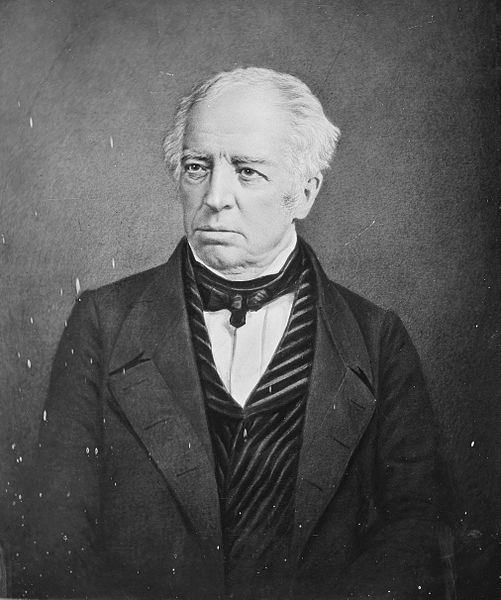People v. Ruggles, 8 Johns. R. 290 (N.Y. 1811), is an important decision of the Supreme Court of Judicature of New York both because it is one of the few convictions for blasphemy in U.S. history and because its famed author, Chancellor James Kent, took the position that this was a common law crime, transposed to this country from England, despite a provision in the New York state constitution, similar to that of the First Amendment, disestablishing religion.
Ruggles convicted of blasphemy
Ruggles had been convicted in Kingsbury of blasphemy for stating that “Jesus Christ was a bastard and his mother must be a whore” and sentenced to three months of jail time and a $500 fine. Kent observed that the legal definition of blasphemy was that of “maliciously reviling God, or religion.” In assessing whether this aspect of common law applied in America, Kent observed that Americans were as much in need as were the English of “all the moral discipline, and of those principles of virtue, which help to bind society together.” Article 38 of the New York constitution provided that “the free exercise and enjoyment of religious profession and worship, without discrimination or preference, should forever thereafter be allowed within this State, to all mankind.” Kent interpreted this provision to provide “a free and universal toleration, without any of the tests, disabilities, or discriminations, incident to a religious establishment.”
Court ruled that blasphemey only applied to attacks on Christianity
In an equally fascinating interpretation, Kent ruled that blasphemy in New York did not apply to the attacks on all religions (he specifically mentioned “the religion of Mahomet or the Grand Lama”) but that of Christianity alone. Ruggles’s conviction rested on the fact that “we are a Christian people, and the morality of the country is deeply ingrafted upon Christianity, and not upon the doctrines or worship of those imposters.” Kent observed that the Constitution was not intended to justify “acts of licentiousness, or justify practices inconsistent with the peace and safety of the State.” He cited laws against immorality and laws recognizing Sunday as the day of worship as evidence of Christianity’s status under the common law.
Court has ended blasphemy laws
Kent’s notion that state common law embraced Christianity was similar to that of Justice Joseph Story and contrary to the views of Thomas Jefferson. In Burstyn v. Wilson (1952), the Supreme Court appears to have put the final nail in the coffin of American blasphemy laws, although some states still have blasphemy laws on the books.
John Vile is a professor of political science and dean of the Honors College at Middle Tennessee State University. He is co-editor of the Encyclopedia of the First Amendment. This article was originally published in 2009.

